Farewell to Kazimierz Piechowski, the Pole who Starred in the Quickest Escape from Auschwitz
Last Friday, Kazimierz Piechowski died in Gdansk (Poland), at 98 years of age. When he was 22 years old, this man starred in a spectacular escape from the Auschwitz camp.
The Polish Boy Scouts, persecuted by the Gestapo
Born in Tczew (Pomerania), northern Poland, on October 3, 1919, when World War II began, Piechowski was a Boy Scout, a movement that stood out in Poland for its fierce resistance to the invaders - both the Germans like the Soviets-, not only in 1939, but also during the rest of the struggle, when many of its members went on to swell the so-called Szare Szeregi (Gray Ranges) of the Armia Krajowa, the main organization of the Polish resistance. The Polish scouts, outlawed by the Nazis, had a special role in the Warsaw Uprising of August 1, 1944. Precisely because of that combativity, the Polish scouts became a preferred target for the Gestapo.
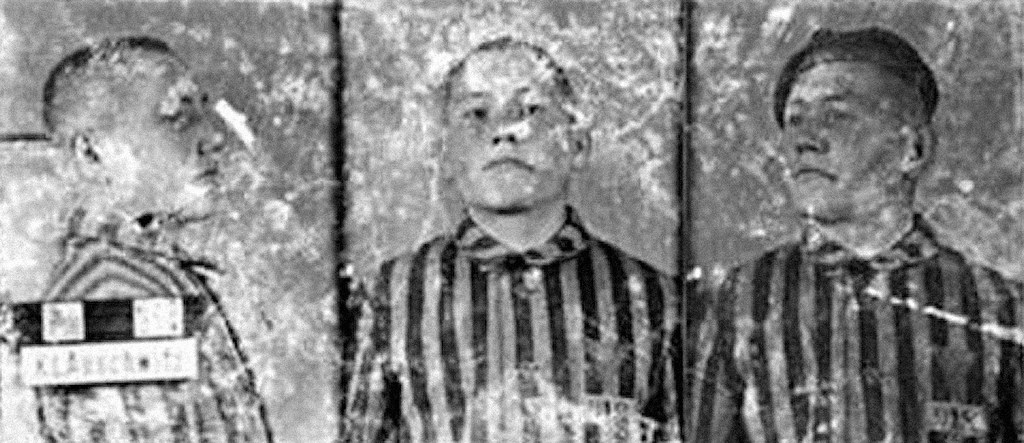
He witnessed the heroic sacrifice of St. Maximilian Kolbe
Piechowski left his hometown on November 12, 1939, hoping to join in France the Polish forces that had come there to continue the fight against the Germans. Piechowski's plan was to flee through Hungary, but was captured by the Germans on the border. Sent to the prison of the Gestapo in Baligród, and then to those of Sanok, Montelupich and Wiśnicz. Finally he was interned in Auschwitz on June 20, 1940, being labeled as a political prisoner, that is, wearing as a distinctive red inverted triangle, which in the case of Poles was added a letter "P" in black. Piechowski received the number of prisoner 918 (on these lines you can see his file). During his stay in this camp, at the beginning of August 1941, the Polish youth witnessed the act of heroism with which Saint Maximilian Kolbe offered to be executed instead of the Polish sergeant Franciszek Gajowniczek, married and father of a family. The Polish saint was killed by a lethal injection on August 14, 1941, after having survived two weeks of hunger and dehydration.
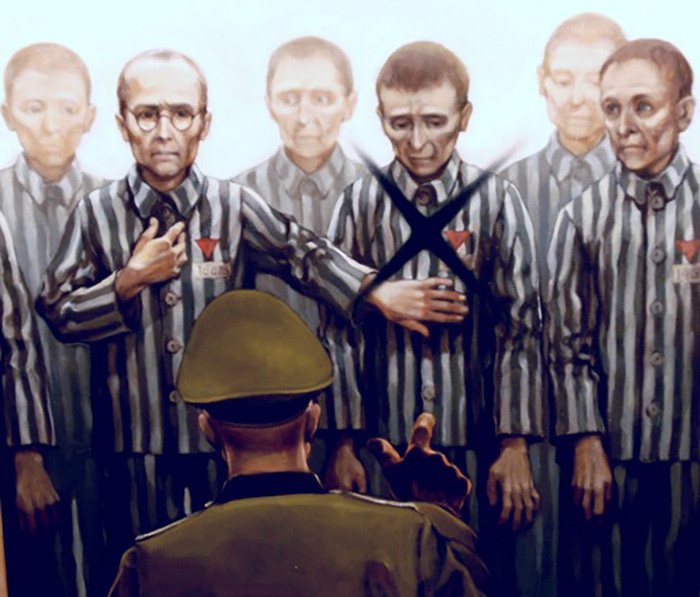
A daring escape in the car of an SS officer
Having had access to the list of upcoming executions, Piechowski discovered that his friend Eugeniusz Bendera would be killed shortly. Both decided to devise a daring escape plan, which involved stealing the car of SS officer Paul Kreuzmann, a Steyr 220 Sedan capable of reaching a high speed. On June 20, 1942, just two years after his internment in Auschwitz, Piechowski managed to escape along with three other prisoners: his friend Bendera (a native of Czortków and mechanical prisoner, in charge of maintaining the cars, so he had access to the officer's car), Lieutenant Stanisław Gustaw Jaster of the Polish Army (aged 21, a native of Warsaw, veteran of the 1939 fighting and member of the Związek Organizacji Wojskowej, ZOW, the Polish resistance organization founded by Witold Pilecki in Auschwitz in 1940) and priest Józef Lempart (aged 26 and a native of Wadowice).
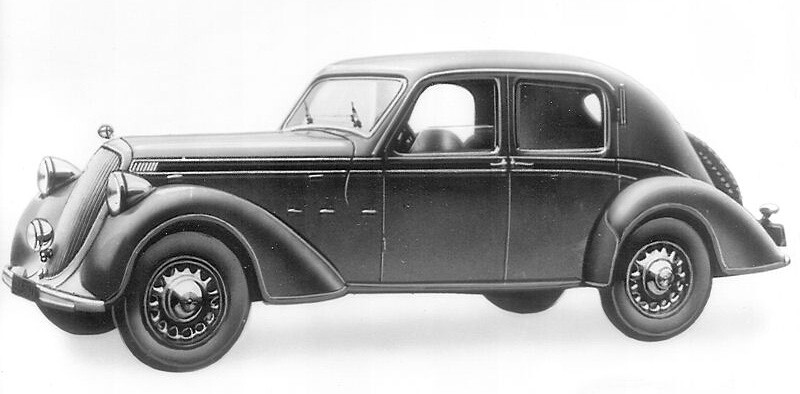
The escapees carried a report to the allies about what was happening in Auschwitz
The four fugitives got a cart, pretending to be a Rollwagenkommando, the groups of prisoners -generally young- who transported different materials between the different sections of the concentration camp, taking the place of the horses when pulling the cart. In this way they went out through the main gate of the field, under the famous arch with the slogan "Arbeit macht frei" (Work will set you free). Bendera went to the parking lots. Priest Lempart and Lieutenant Jaster sneaked into a coal warehouse that Piechowski had helped fill, altering its closure to gain access to it. Then they sneaked into the warehouse where the Germans kept uniforms and weapons, taking four machine guns and eight grenades there. Bendera, who was allowed to test the operation of the vehicles next to the field, arrived with the Steyr 220 Sedan. The four dressed in SS uniforms and boarded the car: Bendera at the wheel, Piechowski as a passenger and the two remaining in the back seat. Lieutenant Jaster carried with him a report prepared by Witold Pilecki, who had infiltrated in 1940 in Auschwitz, addressed to the allies to alert them about what was happening in that field.
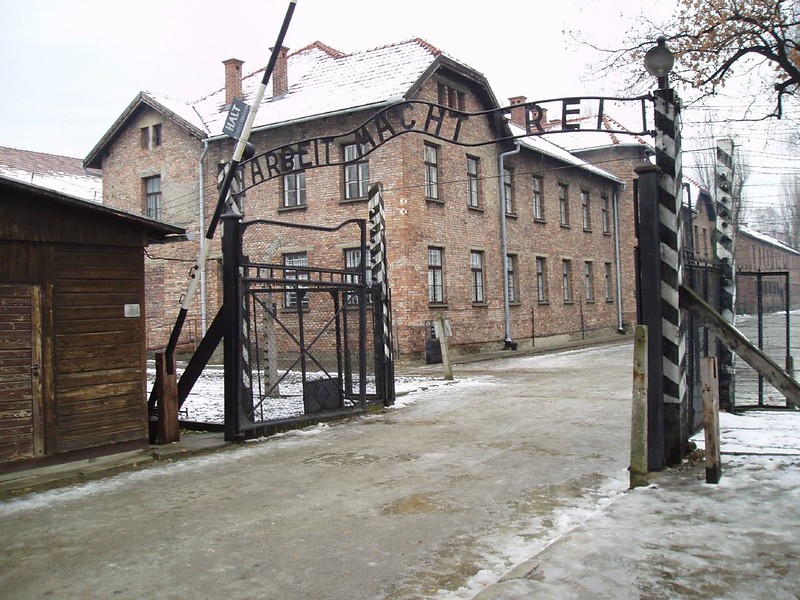
(Photo: Tulio Bertorini - Wikimedia)
After the escape, Piechowski joined the Polish resistance
The four escaped went to the entrance of the enclosure and began to get nervous when they saw that the door did not open. As he paused at the door, Piechowski opened the door and bowed to the guard to see the badge of his rank, yelling for it to open. The door opened. After escaping, the escaped went to Maków Podhalański, near the border with Slovakia and 60 kilometers from Auschwitz, leaving the car there. Piechowski then went to the Ukraine, but he could not find refuge there due to the strong anti-Polish feeling in the country, so using false documentation, he returned to his hometown, Tczew, to find work on a farm. There he made contact with the Armia Krajowa, joining the group of partisan troops led by Lieutenant Adam Kusz "Garbaty", a Polish patriot who after fighting against the Nazis, would continue his struggle in the resistance against the Soviet occupation until 1950, being one of the last "Cursed soldiers".
His parents murdered by the Nazis, and he imprisoned by the Communists
Piechowski spent the rest of the war in the AK ranks. In retaliation for their escape, the Germans arrested their parents and sent them to Auschwitz, where they died. In addition, some authors affirm that as a result of that audacious escape -investigated by a commission sent from Berlin- the Germans began to tattoo the prisoners of that field. After the war, Piechowski returned to Pomerania, where he began his studies at the Technological University of Gdansk. Later he found work in a factory in the same voivodship, until a communist denounced him for having been a member of Armia Krajowa (as this was an organization of the Polish resistance loyal to the Polish Government in exile, the Soviets and their Polish puppets waged fierce repression against their members). The communist regime sentenced Piechowski to ten years for having fought against the Nazis in the AK, an irony. He spent seven years in jail. At his departure he was 33 years old. "They have taken away all my youth," he recalled years later than he thought then. In the following decades he worked as an engineer. After the fall of communism, the president of the Polish Parliament, Maciej Płażyński, wanted to grant him the Order of the White Eagle, the highest Polish decoration. Piechowski rejected it, saying: "I do not think this honor is due to me." After selling his land in Gdansk in 1989, already 70 years old, he traveled with his wife in 60 countries. In 2006, his hometown of Tczew named him an honorary citizen. That same year, his escape from Auschwitz was the subject of the documentary "Uciekinier" (The man in the race), made by Marek Tomasz Pawłowski and Małgorzata Walczak and winner of several international awards. In 2009 the British singer Katy Carr dedicated her song "Kommander's Car". He spent his last years of life in Gdansk, where he has passed away.
Serve this entry as a tribute to this Polish hero and patriot. Rest in peace.
Cześć i chwała bohaterom!
Honor and glory to the heroes!
|
Don't miss the news and content that interest you. Receive the free daily newsletter in your email: Click here to subscribe |
- Most read
- The 'hole' without civil flights around Paris during the opening of the Olympic Games
- Spain vetoes the Russian frigate 'Shtandart', which intended to reach Vigo, in all its ports
- The interior of the Statue of Liberty torch and the sabotage that canceled its visits
- The ten oldest national flags in the world that are still in use today
- The BNG boasts of the support of a terrorist group and a dictatorship at a public event
- The Russian intelligence document that sparked a hoax about French troops
- A virtual tour of ancient Rome in full color, just as it was in its heyday
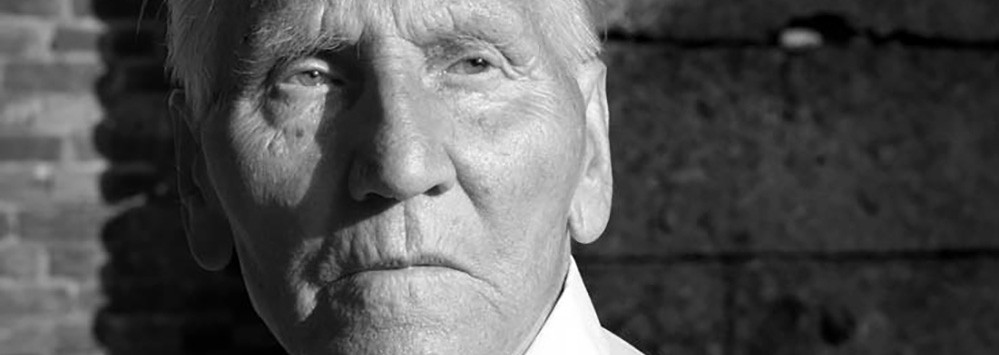
 ES
ES





Opina sobre esta entrada: